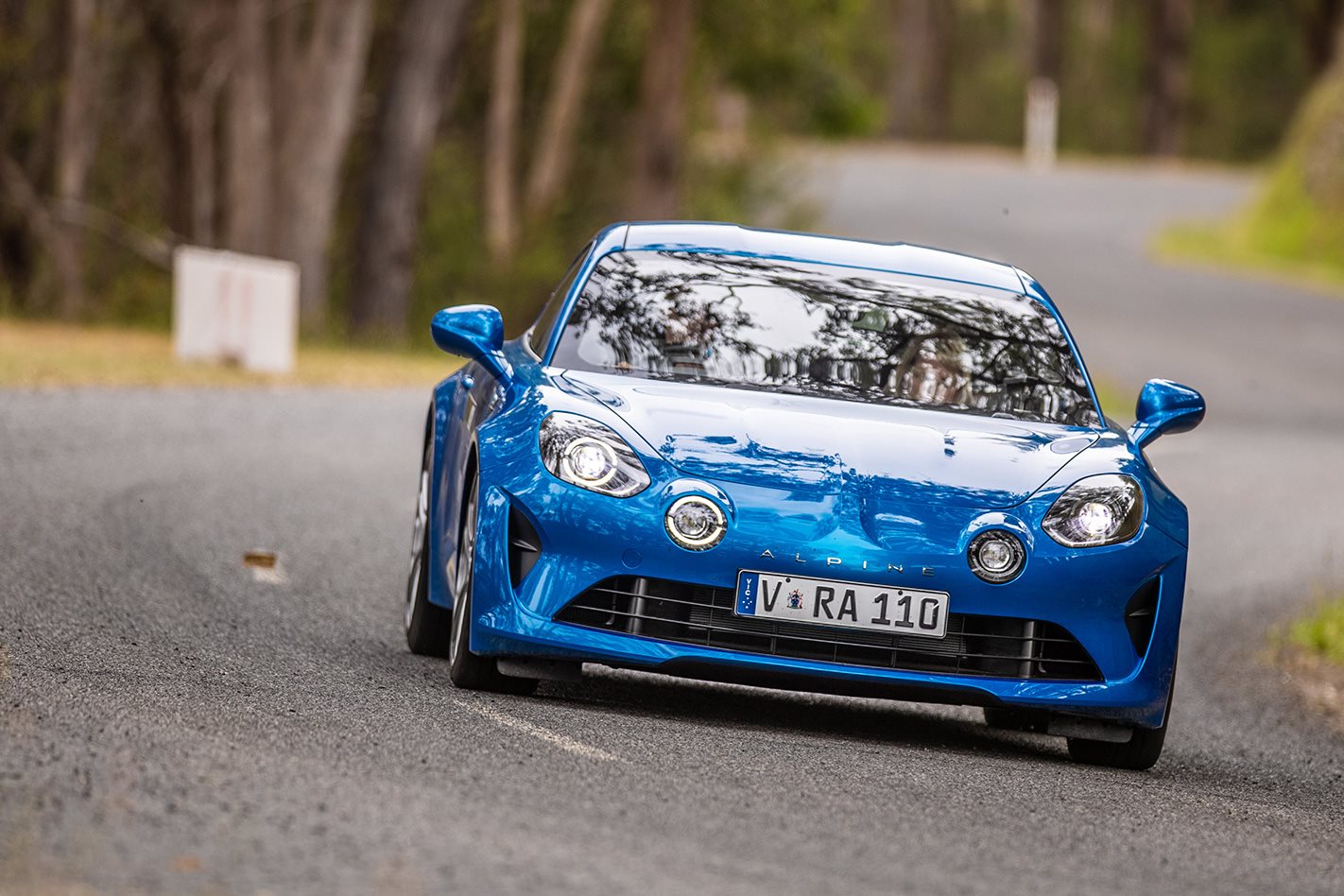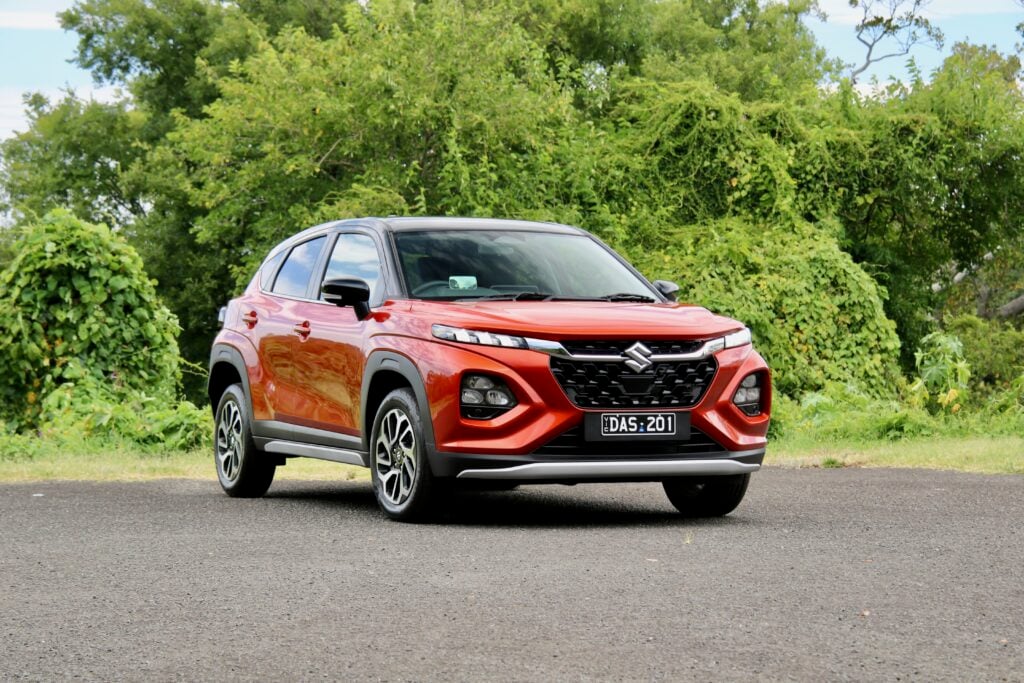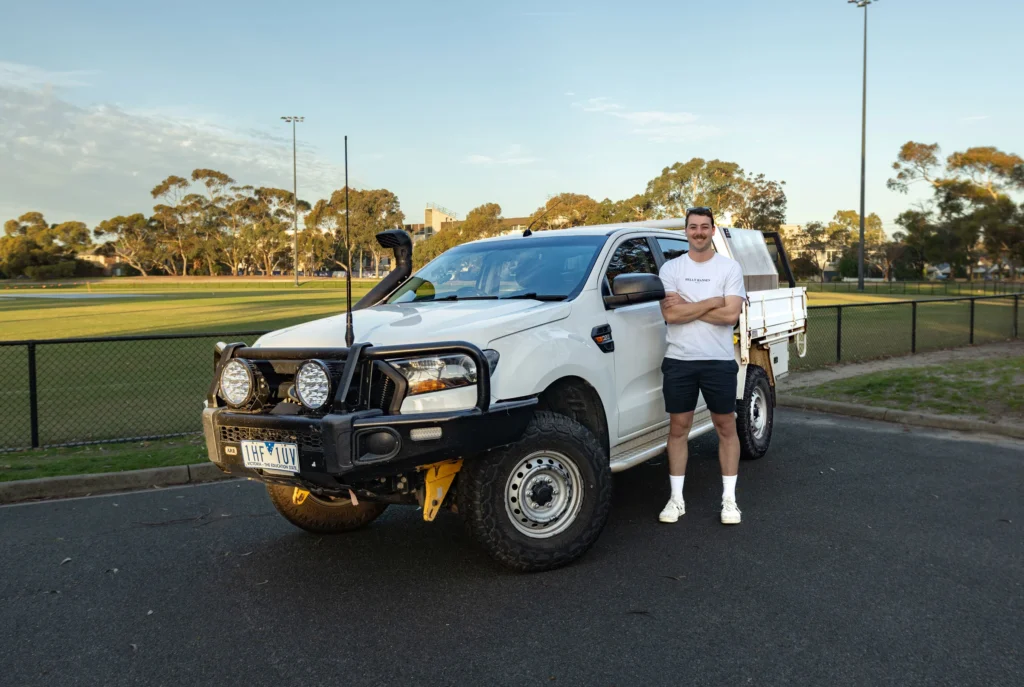WHAT IS IT
If you’ve got just north of $100k to spend on a sports coupe, the market’s been a three-way carve up. Hardcore option? Buy a Lotus Elise. Need back seats? BMW M2. Want the most polished performer? Spring for a Porsche Cayman. Beyond that, you were into varying degrees of self-flagellation. Alpine’s A110 now offers a fourth way and a very appealing one at that. But is it really good enough to level with the best driver’s car in the class?
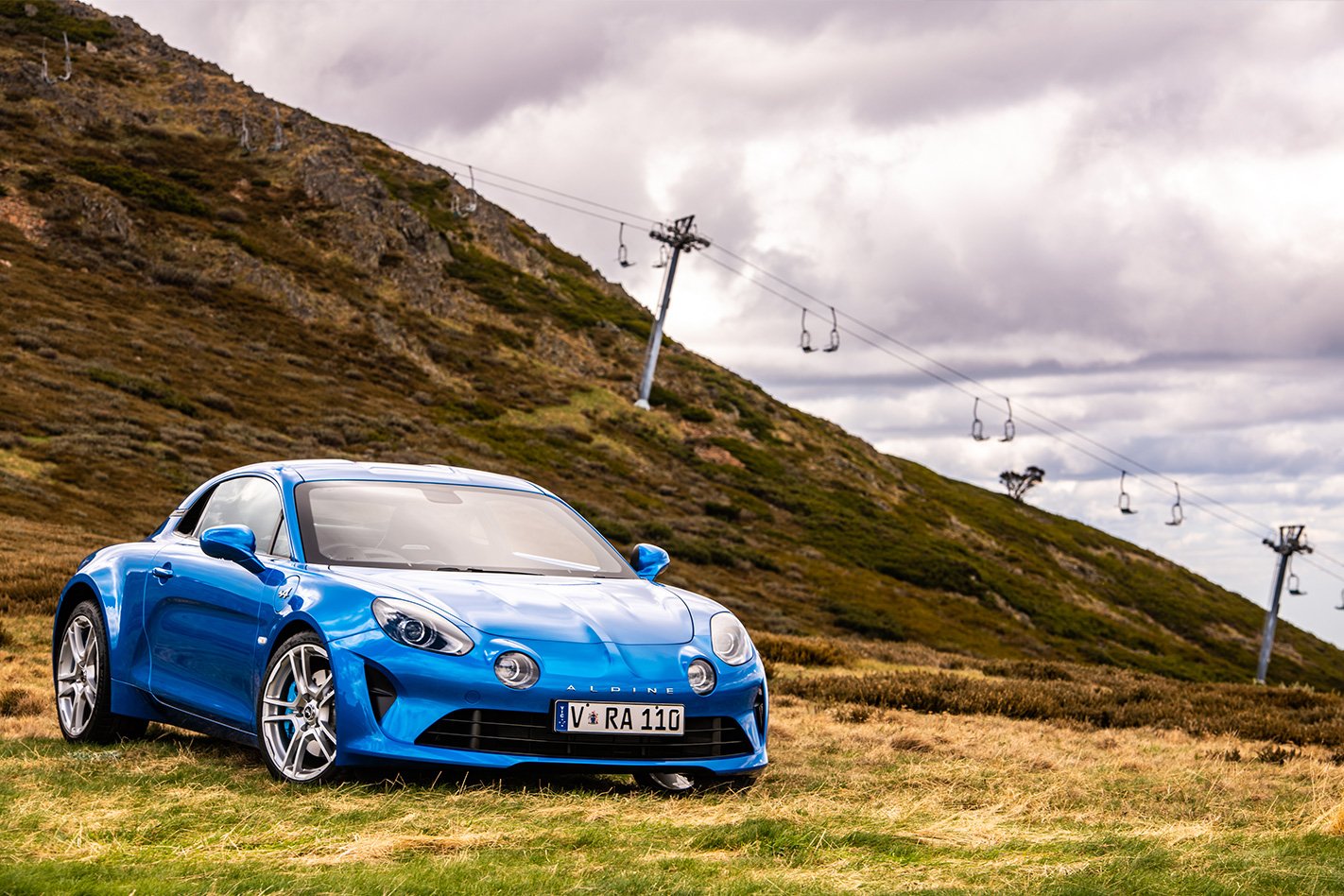
WHY WE’RE TESTING IT
We had an invite to give the Alpine A110 a vigorous workout on this year’s Targa High Country event, which represented the perfect opportunity to see how the car coped with demanding Australian roads at the sort of speeds that would normally have us worrying about our licences.
MAIN RIVALS
Alfa Romeo 4C; Audi TTS; BMW M2; Lotus Elise; Porsche Cayman
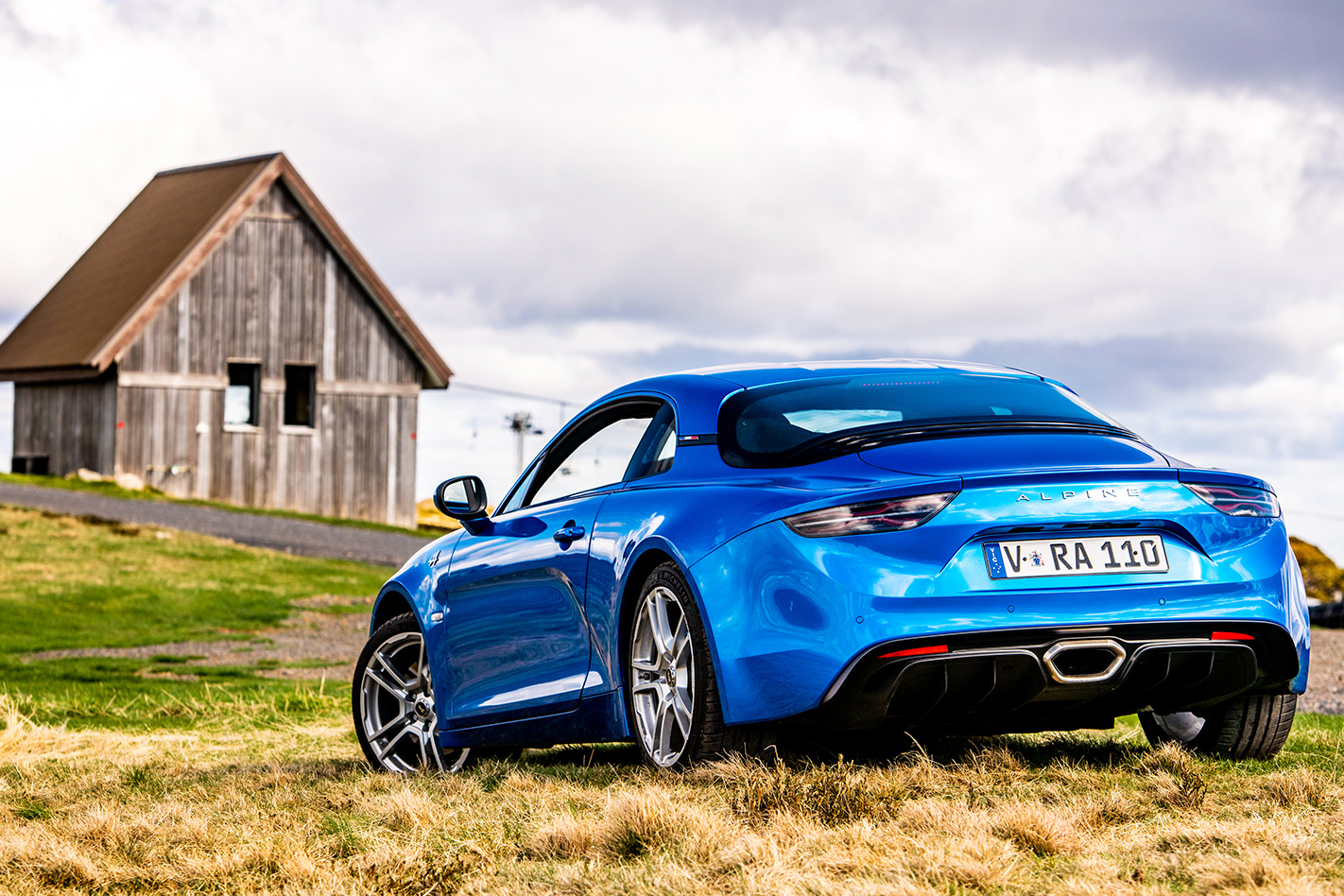
THE WHEELS REVIEW
THERE’S one question you probably have about the Alpine A110. Can it really be that good? If you’d read the initial reviews on the car you may well be excused for thinking some fairly seasoned motoring journalists got a bit giddy after their first encounter with the Alpine, gushing like hormonal shopping channel hosts. I’m hoping it is as good as billed, because I’ve just climbed into one at Targa High Country, and my co-driver’s pace notes for the first stage include a road that’s wriggling up the face of a hill like an overcaffeinated nematode worm.
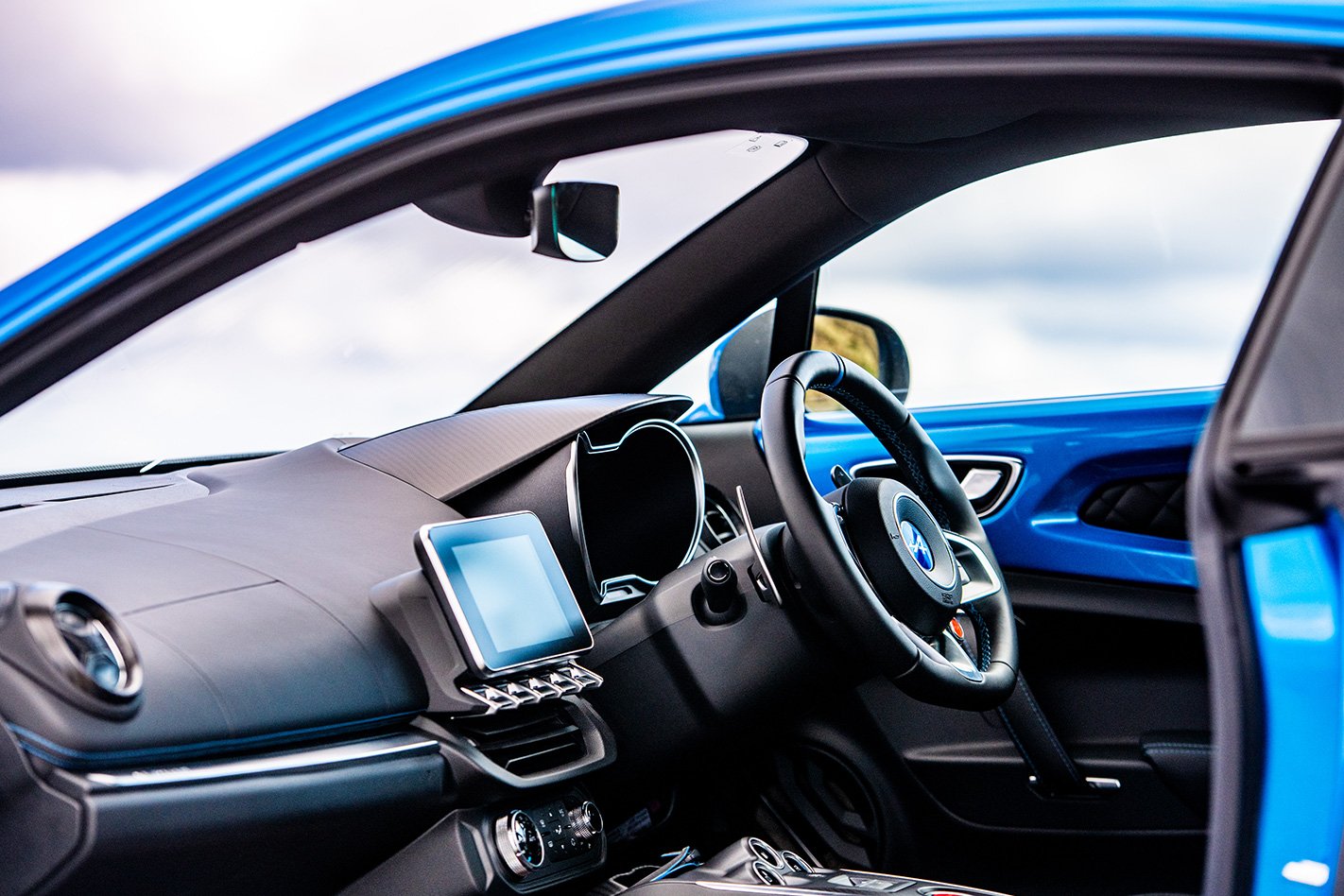
First impressions are good. The A110 draws a crowd, event photographers in thrall to its slinky shape. Alpine shies away from the retro tag, preferring to imagine that this is what Jean Rédélé’s original 1961 A110 would have developed into given a continuous product evolution, but there’s an unashamed nod to the past here. Cast a critical gaze through the cabin and it’s not difficult to find parts-bin commonality with some fairly blue-collar Renault models, but it’s fairly stylishly integrated, bold in its execution and, most importantly, works well. The car we’re driving is the range-topping Premiere Edition, priced at $106,500 plus on-roads and limited to just 60 units. Featherweight Sabelt buckets, 18-inch Fuchs alloys, Brembo bi-material brakes and an active sports exhaust contribute to the asking price, although there are also $97,000 Pure and $103,500 Legende models on offer.
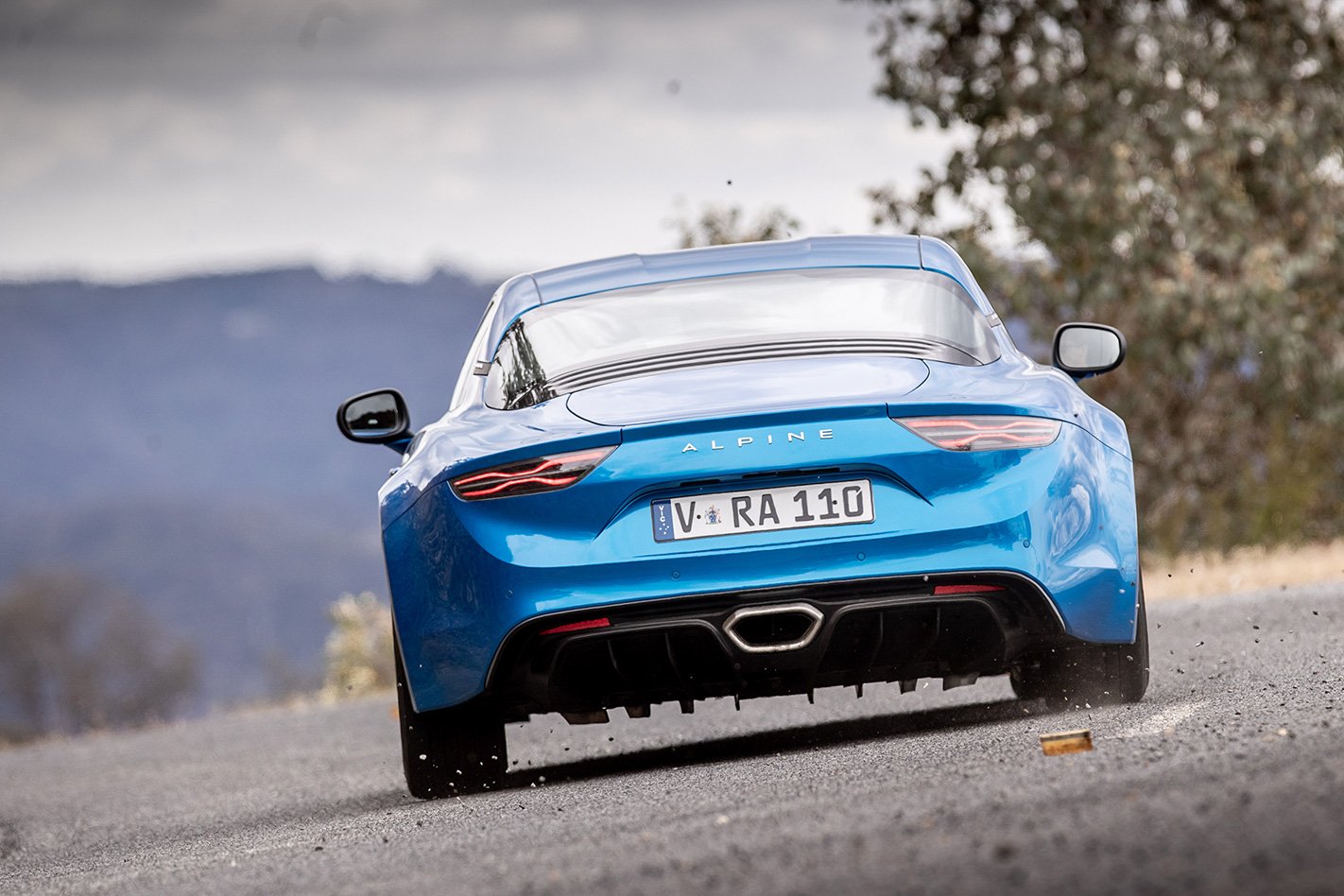
Glance beneath and you’ll spot the double wishbones at each end, the neatly bonded and riveted aluminium chassis and the positively avian anti-roll bars. Because the car is so light, the front one is 17mm across; slighter than some Mont Blanc fountain pens. The Michelin Pilot Sport 4 tyres are a modest 205 section at the front and the brake discs are from a Clio. The springs look like they’ve been purloined from a 125cc MX bike, but at 1103kg, the Alpine isn’t giving them too much in the way of physics to deal with.
Switch it into Sport and floor the throttle and it leaps off the line smartly. Track mode is also available, holding gears to the redline and slackening the stability control off still further, but I’ve just seen the tyre tracks of a Lotus spearing off the side of the hill into nothingness, so I’m glad of a little contingency. The seven-speed dual clutch is a quality installation but not a particular highlight, and Alpine has gone on record saying that there will never be a manual, or a powerplant with more cylinders than the quartet you get here.
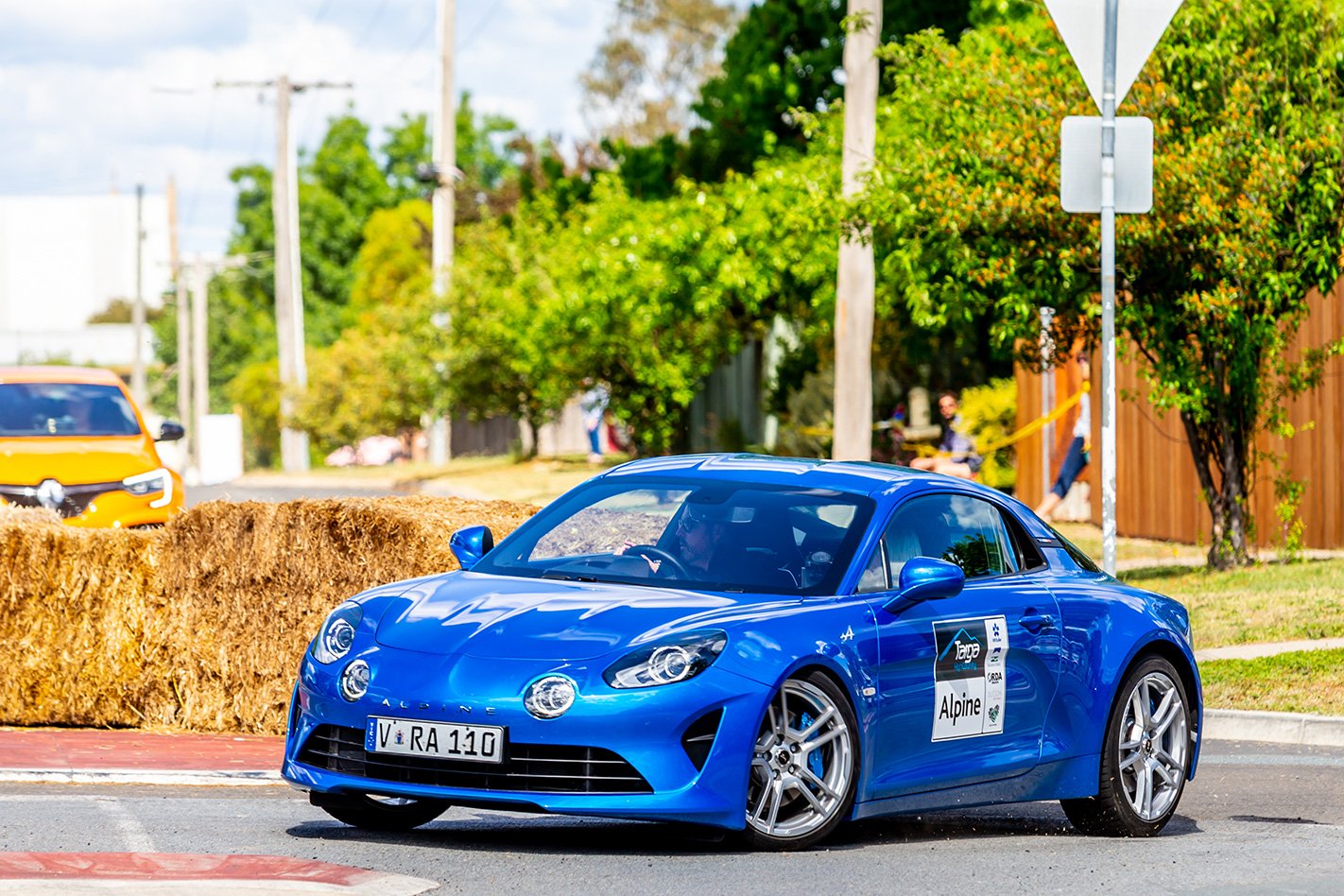
The noise is raw and urgent in the sportier modes, almost as if a sound symposer has been jacked up to 11, but it’s the real deal. It burbles on the overrun and hardens into an angry, metallic zing with a little turbo whistle to round out the harmonic. The electrically assisted steering is crisp and perfectly geared, the pedal weighting is spot-on and there’s even room inside if you’re comfortably over six foot.
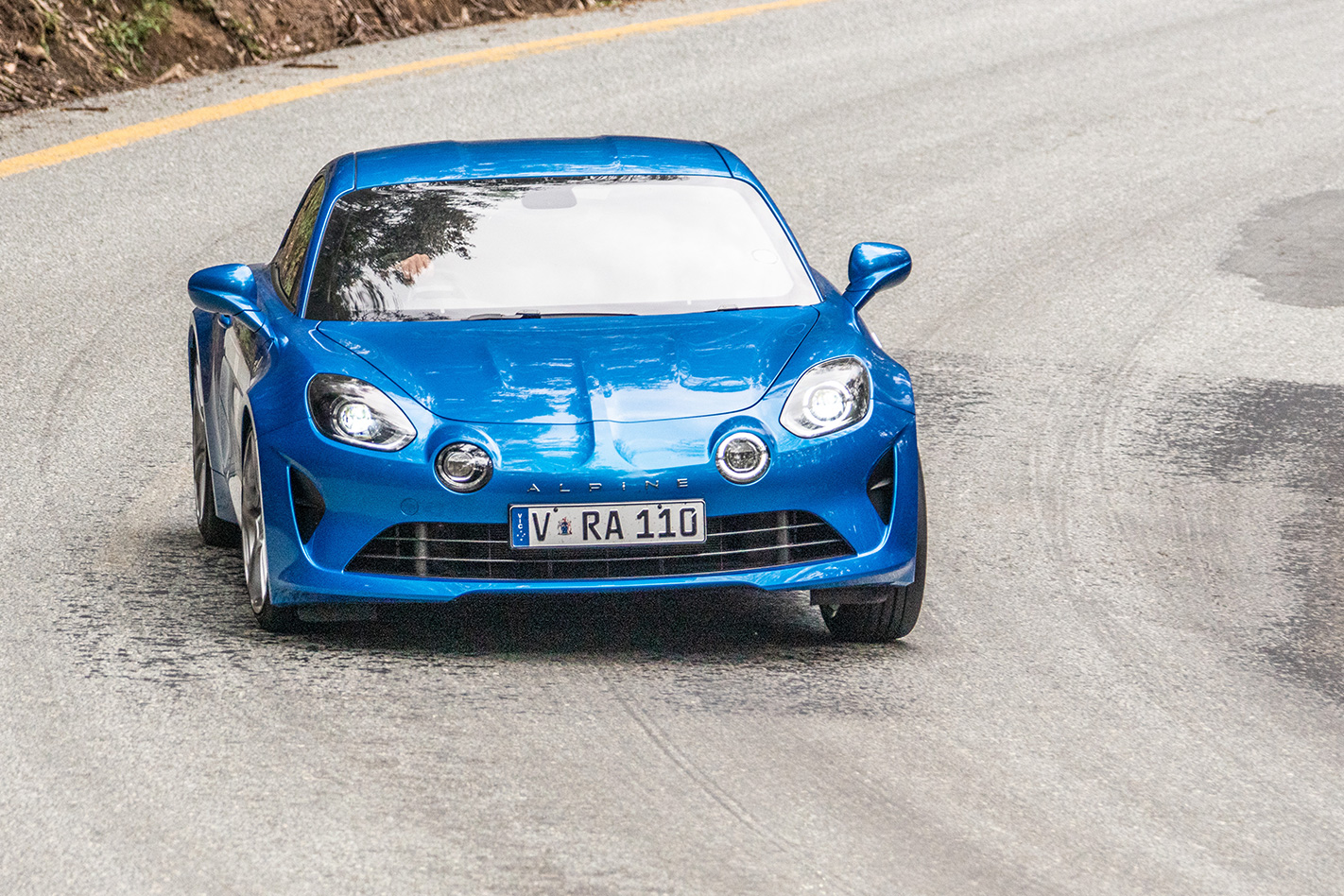
At speed, it’s a revelation. Roads that you’d try to batter into submission in most sports coupes are turned into a flowing, malleable slur of cambers, buttery modulations of throttle and clearly telegraphed roll. It feels balletic, almost slow-motion, such is the car’s natural ability to work smarter; all sympathetic weight transfer and high-definition feedback loops. Provoke it and it’s willing to play along, braking deep into the apex demonstrating amazingly benign yaw damping for a mid-engined car.
So to answer the initial question, yes, it really is as good as billed. Here’s a car that finally makes good on the lightweight promise and which works in Australian conditions. Best of all it does so without compromising Jean Rédélé’s philosophy one iota. Bien joué.
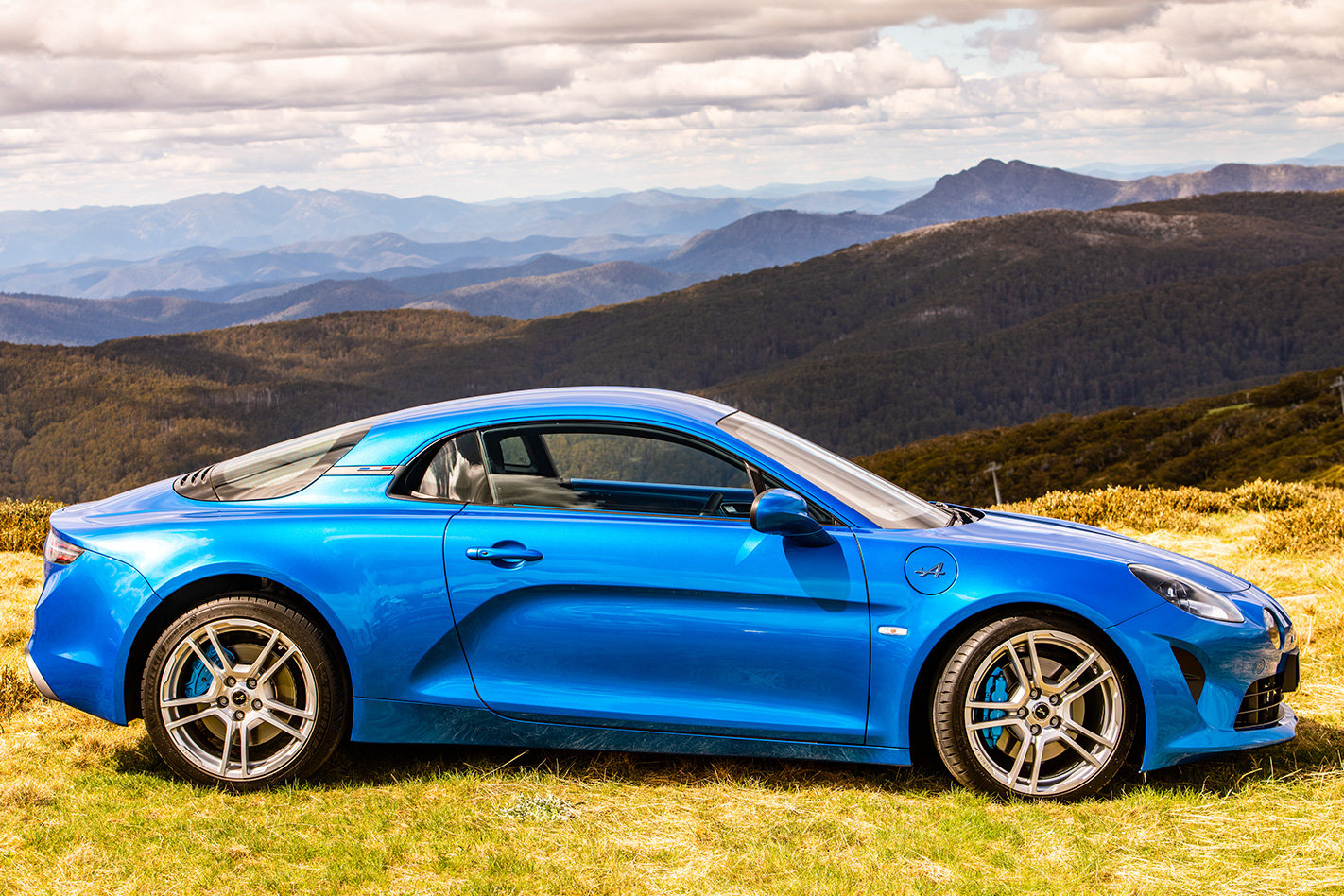
THE WHEELS VERDICT
The Alpine A110 is the perfect solution for those that cherish light weight and efficiency but don’t relish the prospect of a bone-shattering ride and typically flaky low-volume build quality. It feels made for Australian roads, with a rangy pliancy to its chassis tune and a gutsy, turbocharged 1.8-litre with decent flexibility. Import numbers are capped so the A110 will remain a rare sight on our roads, but a lucky few will have landed a genuine game-changer.
PLUS: Pace; soundtrack; ride/handling balance; efficiency; styling; value; exclusivity MINUS: Some cheap interior plastics; dinky shift paddles; poor cabin stowage; little badge equity in Australia
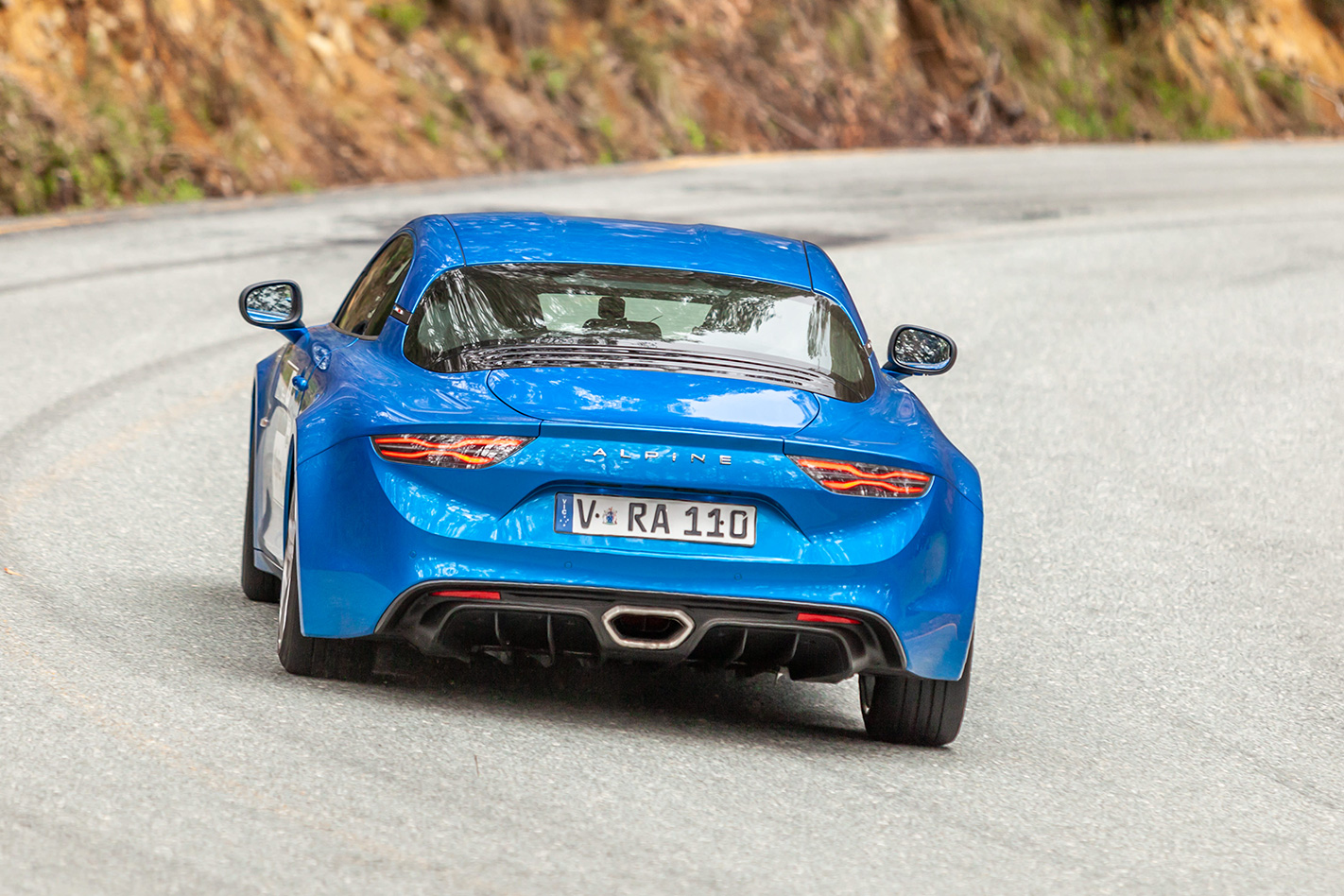
SPECS
Model: Alpine A110 Premiere Edition Engine: 1798cc, inline four, dohc, 16v, turbocharged Max Power: 185kW @ 6000rpm Max Torque: 320Nm @ 2000rpm Transmission: 7-speed dual-clutch Weight: 1103kg 0-100km/h: 4.5 sec (claimed) Fuel economy: 6.1L/100km Price: $106,500 On sale: Now


